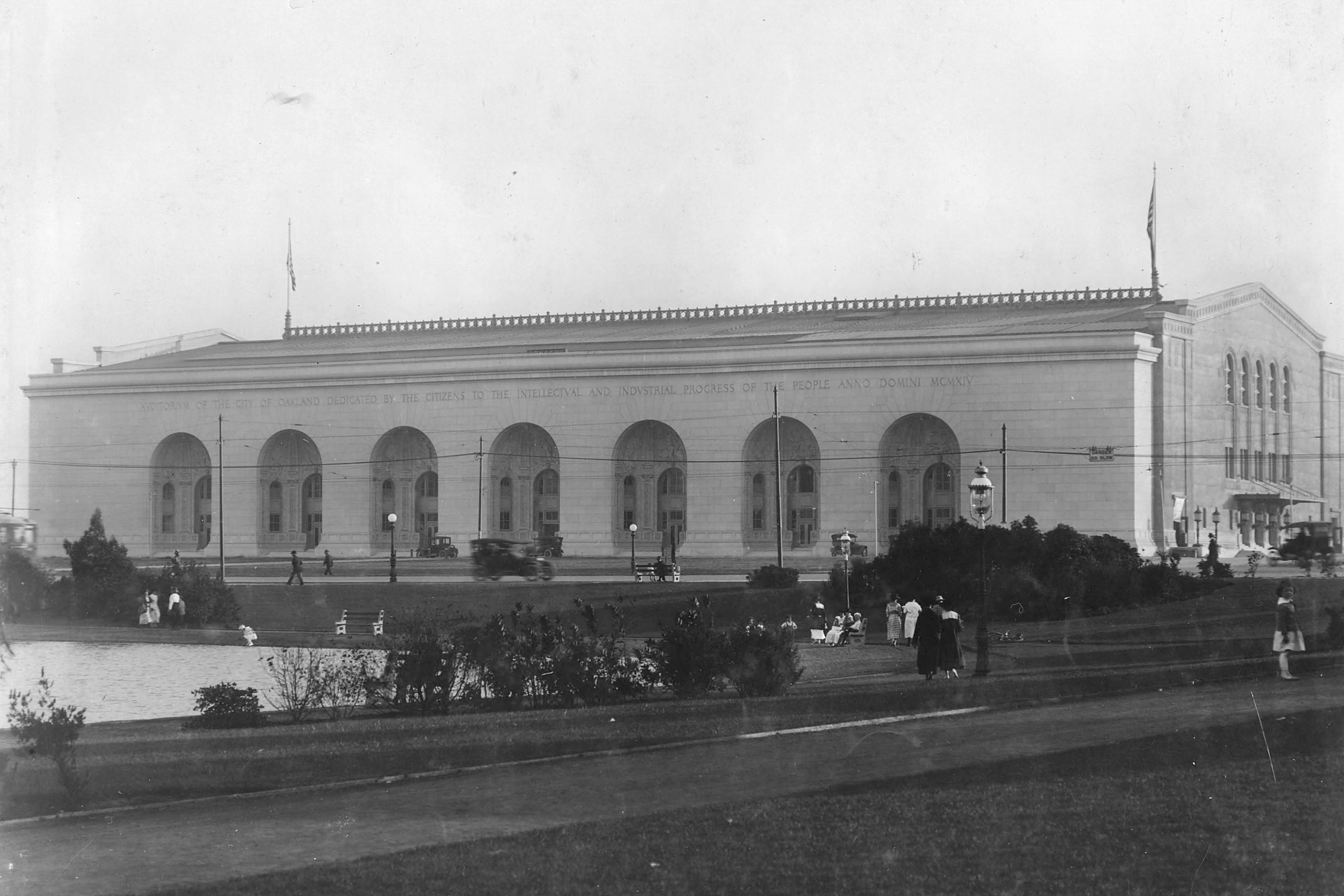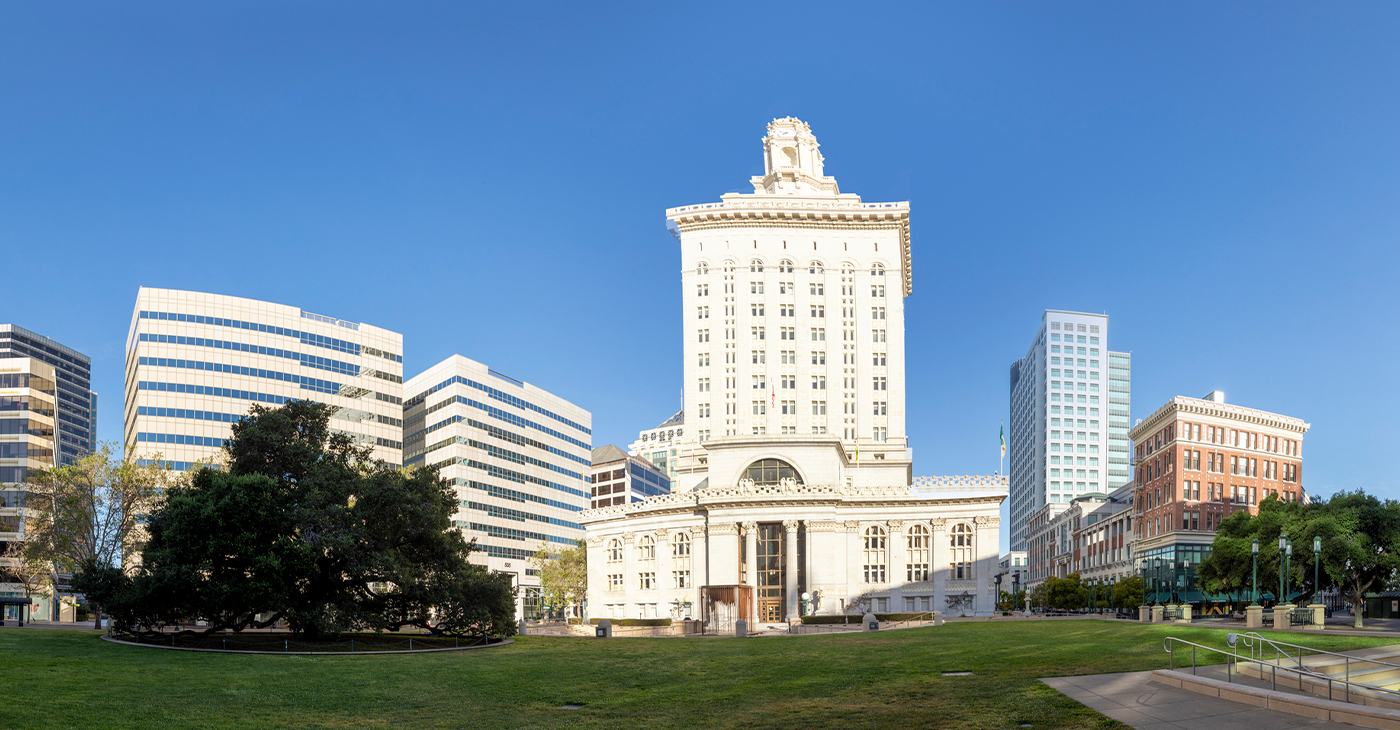News
Opinion – City’s Kaiser 99-Year Lease Proposal “Lacks in Benefits to Marginalized Communities”

In 2014, the City of Oakland issued an RFP for the redevelopment of the Henry J Kaiser Center and Calvin Simmons Auditorium. Two proposals were considered. One was a detailed a robust reuse of the historic site with “baked in community benefit”, and self-accessed itself to supplement funding for cultural affairs.
The other proposal offered a less defined plan for the use of the site, and at one point considered market rate offices and perhaps a brewery as a use for the refurbished building.
The city accepted the latter proposal and entered into a relationship with Orton Development in 2015 and has bent over backward ever since to accommodate shifting iterations of the project now described as arts and nonprofit offices with a 1,500-seat theater.
In April 2019, the Community Coalition for Equitable Development filed an appeal opposing the April 3rd, 2019 Planning Commission decision granting Orton Development a Conditional Use Permit and clearing the way for the negotiation of a 99-year lease between the Developer and the City, privatizing this public site for the length of the agreement.
The appeal, which is scheduled to be heard by City Council this month, cites a failure on the part of the developer to engage stakeholders, calls out a lack of benefit to marginalized communities, questions the benefit to the City of Oakland, and was fueled in part by the city’s failure to enact its equity policies regarding the use of publicly owned property.
The negotiations between CCED and the developer have become a struggle, not over the levels of the anemic concessions contained in the term sheet of a project that was not designed with equity as a lens; but for a way to construct mechanisms that animate and implement some of the equity strategies the city has yet to employ.
Oakland changed between 2014 and 2019. The change is easy to observe in the correlation of the proliferation of cranes in the sky, the not so subtle change in the city’s demographics, and the rising price of living working and creating in The Town. Oakland is booming, but the effect of the boom doesn’t benefit all Oaklanders equally. Oakland has an equity problem. It has studied the root causes of these prevalent inequities, and crafted strategies informed by data and best practices to mitigate displacement and create more equitable outcomes.
The problem is, that as of this moment, the city does not seem to have found a way, or lacks the will, to implement the equity strategies outlined in multiple city policies, documents, and guidelines.
An approach suggested in the Mayor’s Task Force on Arts, and Housing suggests that the City utilize existing properties or buy properties on which to create equitable outcomes for artists at risk of displacement. The Calvin Simmons and the Henry J Kaiser represent unique opportunities to implement equity strategies. They offer an opportunity for the City to do a better job for the community than they did with the Fox, which presents an insurmountable access barrier in the price of production for the few days a year it is available to the community.
This project has become subject to Oakland’s Art Ordinance percent and is subject to the city Impact fee on new development, both grandfathered in. However, the developer was never instructed to use an equity lens. At what point does a failure to enact policy become a form of benign neglect?
The Henry J. Kaiser Center appeal is scheduled to be heard by City Council on July 9.
Ayodele Nzinga, MFA, Ph.D. is executive producing director of the The Lower Bottom Playaz, Inc.
Activism
Oakland Post: Week of December 25 – 31, 2024
The printed Weekly Edition of the Oakland Post: Week of December 25 – 31, 2024

To enlarge your view of this issue, use the slider, magnifying glass icon or full page icon in the lower right corner of the browser window. ![]()
Bay Area
Glydways Breaking Ground on 14-Acre Demonstration Facility at Hilltop Mall
Glydways has been testing its technology at CCTA’s GoMentum Station in Concord for several years. The company plans to install an ambitious 28-mile Autonomous Transit Network in East Contra Costa County. The new Richmond facility will be strategically positioned near that project, according to Glydways.

The Richmond Standard
Glydways, developer of microtransit systems using autonomous, small-scale vehicles, is breaking ground on a 14-acre Development and Demonstration Facility at the former Hilltop Mall property in Richmond, the Contra Costa Transportation Authority (CCTA) reported on social media.
Glydways, which released a statement announcing the project Monday, is using the site while the mall property undergoes a larger redevelopment.
“In the interim, Glydways will use a portion of the property to showcase its technology and conduct safety and reliability testing,” the company said.
Glydways has been testing its technology at CCTA’s GoMentum Station in Concord for several years. The company plans to install an ambitious 28-mile Autonomous Transit Network in East Contra Costa County. The new Richmond facility will be strategically positioned near that project, according to Glydways.
The new Richmond development hub will include “over a mile of dedicated test track, enabling Glydways to refine its solutions in a controlled environment while simulating real-world conditions,” the company said.
Visitors to the facility will be able to experience on-demand travel, explore the control center and visit a showroom featuring virtual reality demonstrations of Glydways projects worldwide.
The hub will also house a 13,000-square-foot maintenance and storage facility to service the growing fleet of Glydcars.
“With this new facility [at the former Hilltop Mall property], we’re giving the public a glimpse of the future, where people can experience ultra-quiet, on-demand transit—just like hailing a rideshare, but with the reliability and affordability of public transit,” said Tim Haile, executive director of CCTA.
Janet Galvez, vice president and investment officer at Prologis, owner of the Hilltop Mall property, said her company is “thrilled” to provide space for Glydways and is continuing to work with the city on future redevelopment plans for the broader mall property.
Richmond City Manager Shasa Curl added that Glydways’ presence “will not only help test new transit solutions but also activate the former Mall site while preparation and finalization of the Hilltop Horizon Specific Plan is underway.
Alameda County
Last City Council Meeting of the Year Ends on Sour Note with Big Budget Cuts
In a five to one vote, with Councilmembers Carroll Fife and Janani Ramachandran excused, the council passed a plan aimed at balancing the $130 million deficit the city is facing. Noel Gallo voted against the plan, previously citing concerns over public safety cuts, while Nikki Fortunato-Bas, Treva Reid, Rebecca Kaplan, Kevin Jenkins, and Dan Kalb voted in agreement with the plan.

By Magaly Muñoz
In the last lengthy Tuesday meeting of the Oakland City Council for 2024, residents expressed strong opposition to the much needed budget cuts before a change in leadership was finalized with the certification of election results.
In a five to one vote, with Councilmembers Carroll Fife and Janani Ramachandran excused, the council passed a plan aimed at balancing the $130 million deficit the city is facing. Noel Gallo voted against the plan, previously citing concerns over public safety cuts, while Nikki Fortunato-Bas, Treva Reid, Rebecca Kaplan, Kevin Jenkins, and Dan Kalb voted in agreement with the plan.
Oakland police and fire departments, the ambassador program, and city arts and culture will all see significant cuts over the course of two phases.
Phase 1 will eliminate two police academies, brown out two fire stations, eliminate the ambassador program, and reduce police overtime by nearly $25 million. These, with several other cuts across departments, aim to save the city $60 million. In addition, the council simultaneously approved to transfer restricted funds into its general purpose fund, amounting to over $40 million.
Phase 2 includes additional fire station brownouts and the elimination of 91 jobs, aiming to recover almost $16 million in order to balance the rest of the budget.
Several organizations and residents spoke out at the meeting in hopes of swaying the council to not make cuts to their programs.
East Oakland Senior Center volunteers and members, and homeless advocates, filled the plaza just outside of City Hall with rallies to show their disapproval of the new budget plan. Senior residents told the council to “remember that you’ll get old too” and that disturbing their resources will only bring problems for an already struggling community.
While city staff announced that there would not be complete cuts to senior center facilities, there would be significant reductions to staff and possibly inter-program services down the line.
Exiting council member and interim mayor Bas told the public that she is still hopeful that the one-time $125 million Coliseum sale deal will proceed in the near future so that the city would not have to continue with drastic cuts. The deal was intended to save the city for fiscal year 2024-25, but a hold up at the county level has paused any progress and therefore millions of dollars in funds Oakland desperately needs.
The Coliseum sale has been a contentious one. Residents and city leaders were originally against using the deal as a way to balance the budget, citing doubts about the sellers, the African American Sports and Entertainment Group’s (AASEG), ability to complete the deal. Council members Reid, Ramachandran, and Gallo have called several emergency meetings to understand where the first installments of the sale are, with little to no answers.
Bas added that as the new Alameda County Supervisor for D5, a position she starts in a few weeks, she will do everything in her power to push the Coliseum sale along.
The city is also considering a sales tax measure to put on the special election ballot on April 15, 2025, which will also serve as an election to fill the now vacant D2 and mayor positions. The tax increase would raise approximately $29 million annually for Oakland, allowing the city to gain much-needed revenue for the next two-year budget.
The council will discuss the possible sales tax measure on January 9.
-

 Activism4 weeks ago
Activism4 weeks agoOakland Post: Week of November 27 – December 3, 2024
-

 Activism2 weeks ago
Activism2 weeks agoButler, Lee Celebrate Passage of Bill to Honor Congresswoman Shirley Chisholm with Congressional Gold Medal
-

 Activism2 weeks ago
Activism2 weeks agoPost News Group to Host Second Town Hall on Racism, Hate Crimes
-

 Activism2 weeks ago
Activism2 weeks agoDelta Sigma Theta Alumnae Chapters Host World AIDS Day Event
-

 Business2 weeks ago
Business2 weeks agoLandlords Are Using AI to Raise Rents — And California Cities Are Leading the Pushback
-

 Activism3 weeks ago
Activism3 weeks agoOakland Post: Week of December 4 – 10, 2024
-

 Arts and Culture1 week ago
Arts and Culture1 week agoPromise Marks Performs Songs of Etta James in One-Woman Show, “A Sunday Kind of Love” at the Black Repertory Theater in Berkeley
-

 Activism2 weeks ago
Activism2 weeks agoOakland Post: Week of December 11 – 17, 2024
















































